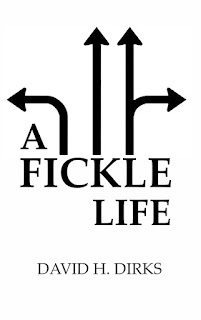Bassett's mother, Rosetta, becomes "Rosey." Her youngest son, "Danny," is fighting writer's block after publishing a best-selling first novel. When Rosey dies in her eighties, Danny flies to Phoenix for the funeral even as his agent presses him for the long-promised manuscript.
"The Rosey View Of The World: One Woman's Journey Through The 20th Century" ($15.95 in paperback from Luminare Press; also for Amazon Kindle) is a captivating tale within a tale, recounting Danny's present-day woes but also his mother's life in notes she bequeathed to him (which fill most of the novel). Born in Northampton, England, Rosey, like Forrest Gump, seems to be present at history's hinge moments.
Young Rosey survives the Battle of Britain; later, she doesn't tell her parents when, at sixteen, she and a friend frequent the club scene. She meets Max, a German prisoner of war, jovially escorted by British soldiers knowing he is no Nazi and will soon be returned to Germany. Max and Rosey spend hours together talking and dancing, little knowing that in the years to come they would meet again—and again.
Rosey marries an American soldier, lives in the segregated South, befriends a Black woman named Carol, becomes involved in the civil rights movement (attending Dr. King's "I Have a Dream" rally in Washington, DC), hangs out with Elvis and later the Beatles, and discovers a terrible secret about her soldier husband. Plain-spoken, with a deep sense of justice, Rosey breaks down sexist and racist barriers.
"When my mother faced a wall in her life," Danny tells his girlfriend, "she tore the wall down. She did everything she could to destroy the bloody thing … as she would have said."
As the walls tumble in Danny's life perhaps a few will fall in the reader's life as well.



